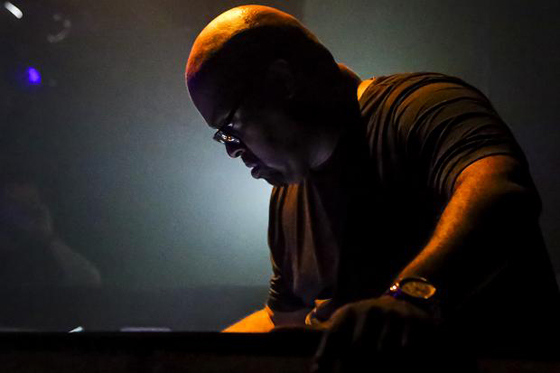DANCE QUEEN MISS RAQUEL REMEMBERS FRANKIE KNUCKLES :: In 2004, Barack Obama declared August 25th “Frankie Knuckles Day” in Chicago. That same year, the city named a street after Frankie Knuckles: “Frankie Knuckles Way”. Doubtlessly now August 25th will be a time to honour house music pioneer Frankie Knuckles: at age 59, Knuckles passed away in his home Monday March 31st from complications due to Type 2 diabetes.
Knuckles’ sets in The Warehouse on Jefferson Street between Jackson Boulevard and Madison Street – now Frankie Knuckles Way – felt like laying down on a cozy well-worn couch that comforts your whole body.
Knuckles arrived on the scene in the 70s when disco was losing its steam. His mentor was house legend DJ Larry Levan. “We would spend entire afternoons working up ideas on how to present a record so that people would hear it in a new way and fall in love with it,” Knuckles said. “To us it was an art form.”
Knuckles brought his education and knowledge from Levan to Chicago, where he became known as “the godfather of Chicago house music” at the Warehouse and, later, the Power Plant.
Techno legend Derrick May was responsible for giving Knuckles a 909 drum machine at the Power Plant to play with his edits. May recalls, “Nothing comes close to those moments of magic, of fire, of power.”
The Chicago Tribune wrote, “He would extend mixes of soul and R&B records and turn them into dance tracks, introduce new singles being produced by fledgling house artists and incorporate drum machines to emphasize the beat. In addition to building dynamic ebb-and-flow sets that would keep his dance floor filled from midnight to noon on weekends, he would create theatre-of-the-mind scenarios with inventive sound and lighting. “Sometimes I’d shut down all the lights and set up a record where it would sound like a speeding train was about to crash into the club. People would lose their minds.”
Can you imagine?
Knuckles believed house music was the soundtrack for hedonism, he embraced humanism and dignified struggle of every day living. He believed the dance floor was a safe haven for gays, African-American’s and Hispanics which were the first groups to embrace his sound and him.
Frankie was a humble house music man. He expressed that he was not “the kind of person that lives for fame and glory. If I’ve got a nice, clean home and can put a meal on my table and can entertain my friends, I’m fine. I don’t need to see my face plastered everywhere.”
Unlike many fame mongering DJs, the unassuming Knuckles always took his dance floor on a journey through dimensions which can never be duplicated or replicated.
Frankie Knuckles is the reason why our hips move from side to side, our heads lifted towards the sky with our eyes closed, savouring the musical dish only a Godfather can serve.
– Like Miss Raquel on Facebook and follow her on Twitter.







Love Knuckles! He taught me so much. And I love Miss Raquel! Thanks for this.